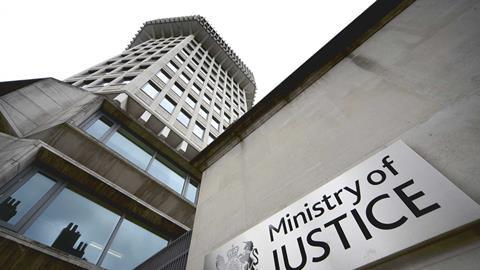Evidence given to MPs by Chris Grayling has sparked a spat between the Bar Council and Ministry of Justice.
The leader of the bar wrote to the justice committee challenging figures given to it by the justice secretary last week.
During his evidence, Grayling told the committee: ‘In very high cost cases, after we have made the changes, our projection is that in the shorter VHCC cases, the typical ones that are a little over 60 days which require a shorter period of preparation, the typical payment to a QC will be around £135,000. I still think that is a fair reward for the job.’
Maura McGowan QC contested the figure given for a ‘typical’case – putting it at £19,992, based on the reduced fee of £333.20 for a full day – seven times less than the sum given to the committee.
In the ‘exceptionally rare’ category 1 case, which are the most serious, McGowan stated that under the proposed fees, a QC would be paid £101.50 per hour for preparation.
In such a case, she said in order to earn the £135,000 stated by Grayling, a barrister would have to do 1,133 hours preparation in addition to the trial advocacy.
She suggested the £135,000 figure quoted by Grayling is ‘far from typical’ as he had set out.
The preparation for it, she said, ‘cannot properly’ be said to be ‘short’ as it would involve between 1,133 and 1,805 hours’ work.
‘To give the impression that £135,000 would be paid for 60 days’ work, is simply not an adequate nor an accurate reflection of the true picture,’ said McGowan.
To reach the figure Grayling suggested, McGowan said the preparation would be ‘enormous’.
The bar leader added: ‘I am sure the lord chancellor had no intention of misleading the committee, but it should not be left with the impression that the case he describes is in any way a typical one.’
An MoJ spokeswoman said the figure given by Grayling is ‘not inaccurate’ and the ministry stands by it.
She told the Gazette: ‘The figure given in Wednesday’s justice select committee was provided by the Legal Aid Agency, who have years of experience managing VHCCs.
‘The secretary of state was clear it included both court and preparation time. Over the last five years the average preparation time for a shorter VHCC court trial has been in the region of 1,300 hours.’
The MoJ’s figure for the average preparation time for shorter VHCC trials was estimated by looking at those trials which have run for between 60 and 70 days over the past five years, and which involved a single QC.
The ministry accepted that no two cases are the same, but said it had provided the committee with an ‘illustrative example’ of a fraud case with 55,000 pages of evidence and a trial lasting 60 days – as that reflects the nature of upcoming VHCCs.
The government plans to cut by 30% the fees paid in VHCC cases, including ongoing ones. The cut is designed to save £19m a year, but senior barristers have indicated they will not be prepared to accept cases at that rate.
Some barristers may return ongoing VHCCs briefs when the cut is implemented in November, causing delay to serious criminal trials.
Read McGowan’s full letter here.




























1 Reader's comment